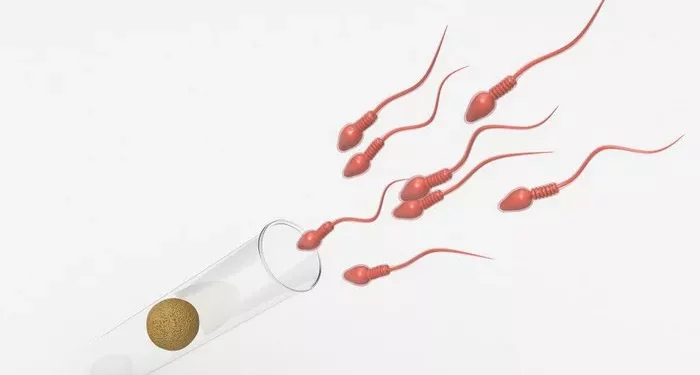Male infertility is a complex medical condition that affects millions of individuals worldwide, impacting their ability to conceive a child with their partner. Azoospermia, characterized by the absence of sperm in the ejaculate, is a significant contributor to male infertility. In this article, we will delve into the various aspects of male infertility with a focus on azoospermia, including its definition, causes, diagnosis, treatment options, prognosis, lifestyle considerations, and emotional support resources.
Definition and Explanation
Male infertility refers to the inability of a male to achieve pregnancy in a fertile female partner after one year of regular, unprotected intercourse. Azoospermia, a subtype of male infertility, is diagnosed when no sperm are present in the ejaculate upon semen analysis. Sperm are essential for fertilizing the female egg, and their absence can hinder natural conception.
Types of Azoospermia
Azoospermia can be categorized into two main types: obstructive azoospermia and non-obstructive azoospermia.
1. Obstructive Azoospermia: This condition occurs due to blockages or obstructions in the male reproductive tract, preventing sperm from reaching the ejaculate. Obstructions may occur in the vas deferens, epididymis, or ejaculatory ducts.
2. Non-obstructive Azoospermia: Non-obstructive azoospermia is typically caused by problems with sperm production within the testes. This may result from genetic factors, hormonal imbalances, testicular injury, or other underlying medical conditions affecting sperm production.
Causes
Several factors can contribute to the development of azoospermia:
1. Genetic Factors: Genetic abnormalities such as Klinefelter syndrome, Y chromosome microdeletions, and chromosomal abnormalities can impair sperm production.
2. Hormonal Imbalances: Disruptions in hormone levels, particularly follicle-stimulating hormone (FSH), luteinizing hormone (LH), testosterone, and prolactin, can affect sperm production.
3. Infections: Sexually transmitted infections (STIs), such as gonorrhea or chlamydia, can cause inflammation and scarring of the reproductive organs, leading to obstructive azoospermia.
4. Varicocele: Varicocele, a condition characterized by enlarged veins within the scrotum, can disrupt testicular function and impair sperm production.
5. Prior Surgeries: Previous surgeries involving the reproductive organs or nearby structures may result in scarring or damage that affects sperm transport or production.
6. Exposure to Toxins: Environmental toxins, radiation therapy, chemotherapy, and certain medications can adversely affect sperm production and quality.
Symptoms
In many cases, azoospermia presents without noticeable symptoms beyond the inability to conceive. However, some individuals may experience symptoms related to underlying conditions contributing to azoospermia, such as testicular pain, swelling, or hormonal imbalances manifesting as changes in libido, erectile dysfunction, or decreased facial or body hair.
Diagnosis
The diagnosis of azoospermia typically involves a comprehensive evaluation by a fertility specialist:
1. Physical Examination: A thorough physical examination may identify any abnormalities of the reproductive organs or signs of hormonal imbalances.
2. Medical History Review: A detailed medical history review helps identify potential risk factors, genetic conditions, prior surgeries, infections, or lifestyle factors that may contribute to azoospermia.
3. Hormone Testing: Blood tests are conducted to assess hormone levels, including FSH, LH, testosterone, and prolactin, which play key roles in sperm production.
4. Semen Analysis: Semen analysis is crucial for diagnosing azoospermia. A sample of semen is analyzed under a microscope to determine sperm count, motility, morphology, and other parameters. The absence of sperm confirms azoospermia.
Treatment Options
Treatment strategies for azoospermia vary depending on the underlying cause and may include:
1. Surgery: Surgical interventions, such as varicocele repair or reconstruction of obstructed reproductive ducts, may be performed to restore sperm flow in cases of obstructive azoospermia.
2. Hormone Therapy: Hormonal medications may be prescribed to address imbalances and stimulate sperm production in individuals with hormonal abnormalities.
3. Sperm Retrieval Techniques: Techniques such as testicular sperm extraction (TESE) or percutaneous epididymal sperm aspiration (PESA) may be utilized to retrieve sperm directly from the testes or epididymis for use in assisted reproductive technologies.
4. Assisted Reproductive Technologies (ART): In vitro fertilization (IVF) with intracytoplasmic sperm injection (ICSI) involves the direct injection of a single sperm into the egg to facilitate fertilization. This technique is particularly beneficial for individuals with severe male factor infertility, including azoospermia.
Prognosis and Success Rates
The prognosis for individuals with azoospermia depends on various factors, including the underlying cause, severity of the condition, and response to treatment. Success rates of treatment options vary, with some individuals achieving successful conception through assisted reproductive techniques while others may face challenges.
Lifestyle and Prevention
While some cases of azoospermia are not preventable due to genetic or medical factors, adopting a healthy lifestyle may support optimal sperm production and overall reproductive health:
1. Maintain a Healthy Weight: Obesity can adversely affect hormone levels and sperm quality. Maintaining a healthy weight through diet and exercise may improve fertility.
2. Avoid Excessive Alcohol and Tobacco Use: Excessive alcohol consumption and tobacco use can impair sperm production and quality. Limiting or avoiding these substances may benefit male fertility.
3. Manage Stress: Chronic stress can disrupt hormone balance and affect reproductive function. Stress-reduction techniques such as mindfulness, meditation, or therapy may be helpful.
4. Avoid Exposure to Environmental Toxins: Minimize exposure to environmental toxins, pesticides, chemicals, and radiation, which can have detrimental effects on sperm production and fertility.
Emotional Support and Resources
Infertility can have profound emotional and psychological impacts on individuals and couples. It is essential to seek emotional support and resources to cope with the challenges:
1. Counseling: Individual or couples counseling can provide a safe space to express emotions, navigate treatment decisions, and develop coping strategies.
2. Support Groups: Joining support groups or online communities for individuals experiencing infertility can offer a sense of belonging, understanding, and shared experiences.
3. Educational Resources: Accessing reliable educational resources, books, websites, and podcasts about infertility can provide valuable information and support throughout the journey.
Conclusion
Male infertility, particularly azoospermia, poses significant challenges for individuals and couples striving to conceive. By understanding the causes, diagnosis, and treatment options for azoospermia, individuals can make informed decisions and seek appropriate medical care. It is crucial to consult with a fertility specialist for personalized evaluation, diagnosis, and treatment planning. Additionally, prioritizing lifestyle factors, seeking emotional support, and accessing resources can help navigate the emotional and physical aspects of infertility with resilience and hope.
Related Topics:
Menstruation’s Relation to Infertility: Everything You Need To Know
Infertility and Depression Statistics: Causes & Risk Factors
Things You Need To Know: Does Hepatitis B Cause Infertility?



























